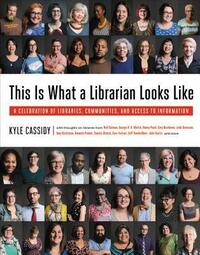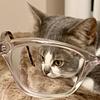Take a photo of a barcode or cover
The stories in this book testify, over and over, to the importance of the Library as a great equaliser that serves every person and group and enables democratic access to knowledge, citizenship, and community. This I knew, and appreciated hearing from so many different voices, but what particularly struck me was a sentiment expressed by Daniel Ronsom, Institutional Services Librarian at the California College of the Arts (p. 174), and echoed by others throughout.
Libraries are crucial to a community, especially for marginalised and underserved groups. Many of the services are public and free, which is hugely important for people who don't have other resources. In the book, a few of the authors write about how they don't have the need to or habit of going to their library and using the services there, but they still make a point of giving back to their library, because they know it benefits people who depend on it everyday.
This is a great point that I had never consciously thought of before. I love libraries and books, and do often check out books, but with access to and familiarity with technology, it is much easier to look up information, read content on the internet or on a device, or even to figure out questions through online resources than it is to do those things physically or with a librarian. I assume most of my peers and much of my generation have the same experience. Bluntly speaking, we may not typically feel the need for libraries, librarians, or their services. However, Daniel Ronsom and a few others in the book challenge this viewpoint, suggesting that me and my peers are people who have the privilege of not needing or depending on libraries, but we thus have a responsibility to support the maintenance and development of libraries for those in our communities for whom libraries are crucial.
An wonderful book of wonderful people, and I am now convinced that libraries are the best institution there is.
The greatest challenge libraries are facing is the apathy of the privileged. Libraries are busier than ever before, but then someone writes a 'think piece' stating that 'libraries are dead' and politicians cite it when slashing the library budgets. It's what actually happened to the Great Library of Alexandria. Yes, it was damaged by fires, but contrary to popular conceptions that's not what destroyed it. In fact, it was time and the apathy of its leadership that led to its slow decline. We can't let the apathy of today's leadership have the same disastrous effects on the libraries of today.
Libraries are crucial to a community, especially for marginalised and underserved groups. Many of the services are public and free, which is hugely important for people who don't have other resources. In the book, a few of the authors write about how they don't have the need to or habit of going to their library and using the services there, but they still make a point of giving back to their library, because they know it benefits people who depend on it everyday.
This is a great point that I had never consciously thought of before. I love libraries and books, and do often check out books, but with access to and familiarity with technology, it is much easier to look up information, read content on the internet or on a device, or even to figure out questions through online resources than it is to do those things physically or with a librarian. I assume most of my peers and much of my generation have the same experience. Bluntly speaking, we may not typically feel the need for libraries, librarians, or their services. However, Daniel Ronsom and a few others in the book challenge this viewpoint, suggesting that me and my peers are people who have the privilege of not needing or depending on libraries, but we thus have a responsibility to support the maintenance and development of libraries for those in our communities for whom libraries are crucial.
An wonderful book of wonderful people, and I am now convinced that libraries are the best institution there is.
Libraries and librarians do more than most people know. This collection of librarian profiles (photo and comment) and author essays is enlightening, thoughtful, and, at times, sobering.
[I was disappointed to find several glaring editing mistakes—misspelled words and the like. Hopefully, they'll be corrected in a future edition; but, I don't want to wait to buy my own copy (I borrowed from my favorite public library, of course!)]
[I was disappointed to find several glaring editing mistakes—misspelled words and the like. Hopefully, they'll be corrected in a future edition; but, I don't want to wait to buy my own copy (I borrowed from my favorite public library, of course!)]



